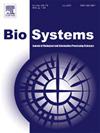威廉-贝特森、黑人奴隶制、优生学和物种繁衍:政治与科学的相对作用。
IF 1.9
4区 生物学
Q2 BIOLOGY
引用次数: 0
摘要
世界的和平受到了社会对抗的挑战,这些对抗往往被冠以 "种族 "或 "民族 "的标签。其中的代表就是基于肤色的歧视。威廉-贝特森的背景表明他同情黑人解放运动。然而,这场运动的成功更多地归功于政治人物之间的争斗,而不是对种族差异的生物学观点有争议的科学家之间的争斗。然而,从长远来看,贝特森对奴隶制和优生问题的贡献可能并不亚于政治家的贡献。孟德尔发现了我们现在所知的 "基因",但这一发现一直被束之高阁,直到 1900 年被贝特森发现。在长达六年的艰苦奋斗中,他努力争取科学界接受这些决定生物特征的单位。后来,他向公众宣传孟德尔学说,反对将孟德尔原理简单地应用于人类事务,并认为区分 "种族 "的微小基因差异(如肤色)并不能创造新物种。贝特森赞扬了达尔文的年轻研究助手乔治-罗曼尼斯(George Romanes)提出的 "生理选择 "物种形成假说。罗伯特-洛克(Robert Lock)重新点燃了这种热情,C-R-克劳瑟(C. R. Crowther)则用现代术语对其进行了表述。因此,引发两个物种分化的火花可能是非基因性的。这种基于全基因组 DNA 序列差异的正常形式的杂交不育在人类物种中发生,但并未成功分裂。它不应被称为 "特发性不育",而应与病理不育和可能被证明为病理的未诊断不育明确区分开来。我们人类是一个在生殖上孤立的群体。本文章由计算机程序翻译,如有差异,请以英文原文为准。
William Bateson, black slavery, eugenics and speciation: The relative roles of politics and science
The peace of the world is challenged by societal confrontations that can often be labeled “racial” or “ethnic.” Emblematic of this is discrimination based on skin colour. William Bateson's background suggests sympathy with the black emancipation movement. Yet the movement's success is attributed more to battles between political figures than between scientists with contending views on the biology of racial differences. However, in the long term, Bateson's contributions to slavery and eugenic issues may be seen as no less important than those of politicians. Mendel's discovery of what we now know as “genes” languished until seized upon by Bateson in 1900. For six exhausting years he struggled to win scientific acceptance of these biological character-determining units. Later, he pressed the Mendelian message home to the general public, opposing simplistic applications of Mendelian principles to human affairs, and arguing that minor genic differences that distinguished “races” – e.g. skin colour – do not initiate new species. Bateson praised the “physiological selection” speciation hypothesis of Darwin's young research associate, George Romanes. This enthusiasm was rekindled by Robert Lock and formulated in modern terms with C. R. Crowther. Thus, the spark that initiates a divergence into two species can be non-genic. This normal form of hybrid sterility, based on genome-wide DNA sequence differences, operates on, but has not succeeded in dividing, the human species. It should not be labeled “idiopathic,” and be clearly distinguished both from pathological sterility and undiagnosed sterilities that may prove to be pathological. We are one reproductively isolated population, the human species.
求助全文
通过发布文献求助,成功后即可免费获取论文全文。
去求助
来源期刊

Biosystems
生物-生物学
CiteScore
3.70
自引率
18.80%
发文量
129
审稿时长
34 days
期刊介绍:
BioSystems encourages experimental, computational, and theoretical articles that link biology, evolutionary thinking, and the information processing sciences. The link areas form a circle that encompasses the fundamental nature of biological information processing, computational modeling of complex biological systems, evolutionary models of computation, the application of biological principles to the design of novel computing systems, and the use of biomolecular materials to synthesize artificial systems that capture essential principles of natural biological information processing.
 求助内容:
求助内容: 应助结果提醒方式:
应助结果提醒方式:


